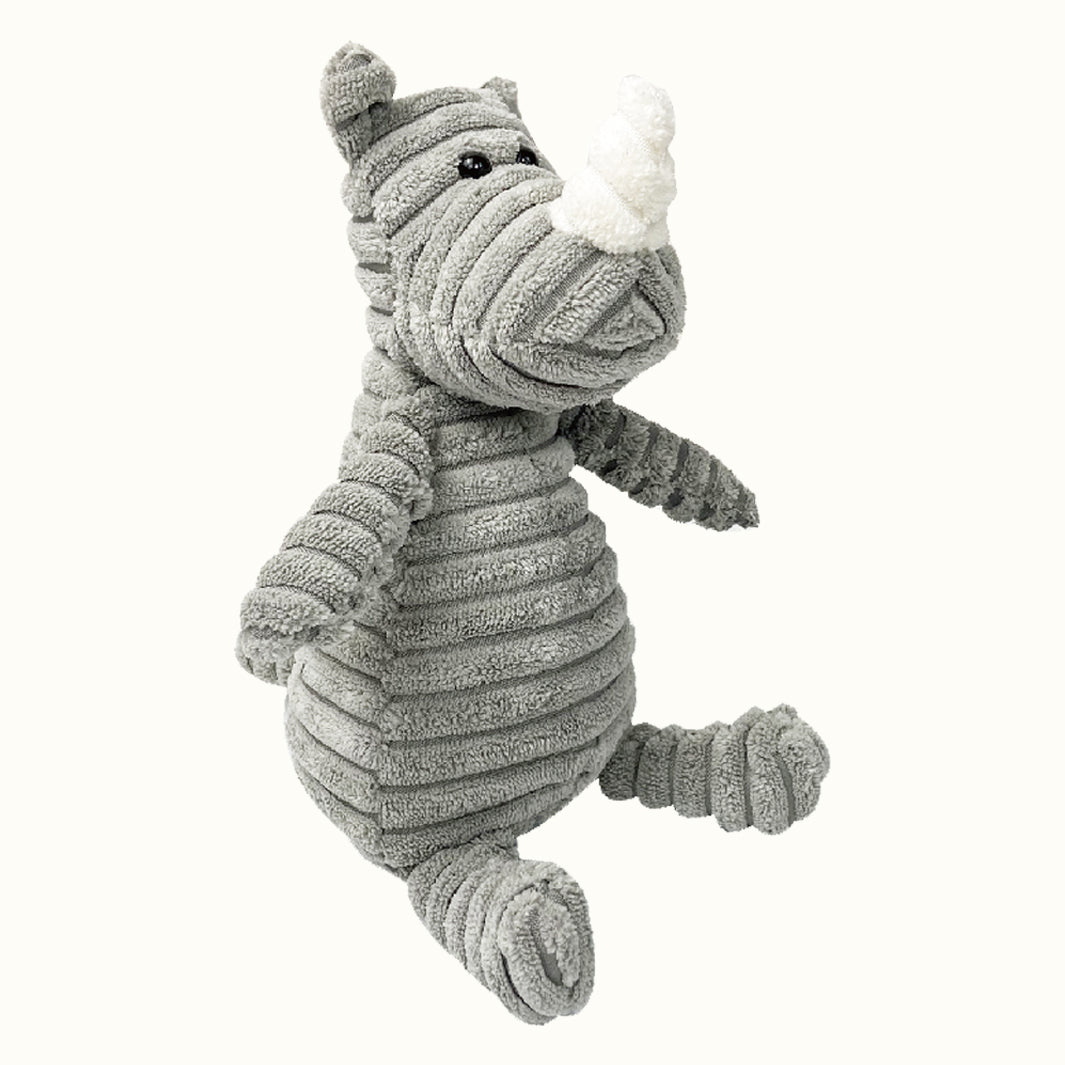Why Do Dogs Sigh? Is This Normal?
Dogs are known to be man's best friend, and they have been domesticated for centuries. They come in different shapes, sizes, and personalities, but one thing is common among them - their ability to communicate with us through body language, facial expressions, and vocalizations.
One of the most intriguing behaviors of dogs is sighing. We often associate sighing with human emotions, such as frustration or relief.
So, when our furry friends let out a sigh, we can't help but wonder - is this normal? In this article, we will explore the reasons behind why dogs sigh and whether it is something to be concerned about.
Understanding Why Dogs Sigh
Sighing is a normal behavior in humans, but it can also be observed in animals like dogs. However, the reasons behind sighing may differ between the two species.
For humans, sighing is often associated with emotions such as relief, frustration, sadness, or even contentment. But for dogs, it's not as straightforward. Dogs do not have the same range of emotions as humans, but they can still express their feelings in different ways.
One of the main reasons why dogs sigh is to communicate with their owners or other dogs. Dogs have a unique way of communicating through body language and vocalizations, and sighing is just one part of it. When a dog lets out a sigh, it could be trying to convey a message, such as asking for attention or expressing contentment.
Another reason why dogs sigh is to regulate their breathing. Just like humans, dogs can also experience stress and anxiety. Sighing helps them relax and release tension by regulating their breathing. It's a natural way for them to calm themselves down in stressful situations.
Moreover, dogs may also sigh when they are bored or tired. Just like how humans let out a sigh when they are feeling bored or exhausted, dogs may do the same to signal that they need a break.
When Is Sighing Not Normal?

While sighing is a normal behavior for dogs, there are instances where it could be a cause for concern.
One possible reason why your dog may be sighing excessively is due to underlying health issues. If your dog is sighing more than usual and also showing other symptoms such as lethargy, loss of appetite, or difficulty breathing, it's essential to consult a veterinarian.
Excessive sighing can also be a sign of respiratory problems in dogs. Breeds with short snouts, such as pugs and bulldogs, are more prone to respiratory issues, and excessive sighing may indicate a problem with their breathing.
Moreover, dogs may also sigh due to pain or discomfort. If your dog has recently been injured or had surgery, it's natural for them to let out occasional sighs as they recover. However, if the sighing persists or becomes more frequent, it could be a sign that your dog is experiencing pain.
In some cases, sighing can also be a sign of separation anxiety in dogs. If your dog sighs excessively when you leave the house or show other signs of distress, such as destructive behavior or excessive barking, it's best to seek help from a professional trainer to address this issue.
Why You Should Pay Attention To Your Dog's Sighs
As dog owners, it's important to pay attention to our dog's behaviors and body language. Sighing may seem like a small and insignificant behavior, but it can provide valuable insights into your dog's emotional and physical well-being.
By understanding the reasons why dogs sigh, we can better communicate and bond with our furry friends. For example, if your dog sighs to ask for attention, you'll know when they need some love and playtime.
Moreover, keeping an eye out for any changes in your dog's sighing behavior can also help detect potential health issues early on. If you notice that your dog is sighing more than usual or showing other concerning behaviors, it's best to consult a veterinarian for proper diagnosis and treatment.
Also, by paying attention to your dog's sighs, you can better understand their preferences and needs. For example, if you notice that your dog often sighs when they are bored, it may be a sign that they need more mental stimulation or exercise.
How To Tell If Your Dog Is Sighing Happily
While sighing can sometimes indicate stress or anxiety in dogs, it's essential to know that they can also sigh when they are content and happy. When a dog is relaxed and at ease, they may let out an occasional sigh as a sign of contentment.
You can tell if your dog is sighing happily by observing their overall body language and facial expressions. A relaxed dog will have a loose and wiggly body, with a slightly open mouth and soft eyes. If your dog's sighs are accompanied by these behaviors, it's most likely a sign of happiness.
Moreover, you can also pay attention to the context in which your dog is sighing. If they are sighing after a long play session or while snuggled up next to you on the couch, it's safe to assume that they are feeling content and relaxed.
Also, it's important to note that dogs may have different sighing patterns and frequencies. Some dogs may sigh more often than others, and this can be influenced by various factors such as breed, personality, and past experiences.
Why You Shouldn't Worry Too Much About Your Dog's Sighing
While it's important to pay attention to our dog's behaviors and sighs, it's also essential not to worry too much about them. As mentioned earlier, dogs have different patterns of sighing, and occasional sighs are a normal part of their communication.
Unless the sighing is excessive or accompanied by other concerning behaviors, there's no need to panic. Some dogs may sigh more than others, and this can be perfectly normal for them.
Additionally, it's also important not to misinterpret a dog's sighs as signs of distress or discomfort. Dogs have different ways of expressing their emotions, and it's crucial to consider their overall body language and context before jumping to conclusions.
Also, it's important to note that sighing is just one aspect of a dog's behavior. It's essential to look at their overall well-being and behavior patterns to get a better understanding of their physical and emotional state.
Should You Sigh Back At Your Dog?
As humans, we tend to mimic the behaviors of those around us. Therefore, it's natural to wonder if you should sigh back at your dog when they let out a sigh.
While there's no harm in doing so, it's important to remember that dogs may not interpret our sighs in the same way we interpret theirs. Dogs communicate primarily through body language and vocalizations, and they may not understand the intention behind our sighs.
Moreover, it's essential to note that dogs can pick up on our emotions and reactions. If you are constantly sighing in a stressful or negative situation, your dog may start to associate your sighs with these feelings.
Instead of sighing back at your dog, it's best to focus on understanding their needs and addressing any potential issues that may be causing them to sigh. This can help build a stronger bond between you and your furry friend and ensure their overall well-being.
Tips For Reducing Your Dog's Sighing

If you notice that your dog is sighing excessively or showing other signs of distress, there are a few things you can do to help reduce their sighing.
Firstly, it's important to address any potential health issues by consulting with a veterinarian. Once your dog receives proper treatment, their sighing should decrease.
If your dog's sighing is due to separation anxiety, it's best to seek help from a professional dog trainer. They can provide you with tips and techniques to help your dog feel more comfortable when left alone.
Additionally, providing your dog with enough mental and physical stimulation can also reduce their sighing. Make sure they have plenty of toys to play with and take them on regular walks or engage in other fun activities.
Lastly, it's important to create a calm and peaceful environment for your dog. Avoid loud noises or stressful situations, and make sure they have a comfortable space where they can relax and feel secure.
Remember, every dog is unique, and their sighing may vary based on their individual needs and personalities. By paying attention to your dog's sighs and addressing any potential issues, you can help ensure their emotional and physical well-being.
FAQs
Should I Be Concerned If My Dog Sighs A Lot?
Occasional sighing is normal for dogs and may not indicate any underlying issues. However, if your dog is sighing excessively or showing other concerning behaviors, it's best to consult with a veterinarian.
Can Dogs Sigh When They Are Stressed?
Yes, dogs can also sigh when they are stressed or anxious. It's important to pay attention to their overall body language and context to determine the cause of their sighing.
Can Dogs Fake A Sigh?
There is no scientific evidence to suggest that dogs can intentionally fake a sigh. However, they may pick up on our behaviors and mimic them. It's best not to jump to conclusions and observe your dog's behavior patterns for a better understanding of their emotions. While sighing can sometimes indicate stress or anxiety in dogs, it's essential to know that they can also sigh when they are content and happy.
Conclusion
Sighing is a common behavior in dogs and can have various meanings. By paying attention to your dog's body language, context, and overall well-being, you can better understand the reasons behind their sighing.
Remember to consult with a veterinarian if you notice any concerning changes in your dog's behavior and seek professional help if needed. And most importantly, continue to show your furry friend love and care, as a happy and content dog is the best kind of sighing dog.
So, keep observing your dog's behavior and communicate with them in their language, and you'll have a strong and loving bond that will last a lifetime. So, next time your dog lets out a sigh, try to understand what they are trying to tell you and enjoy the happy moments together. Happy sighing!














Leave a comment